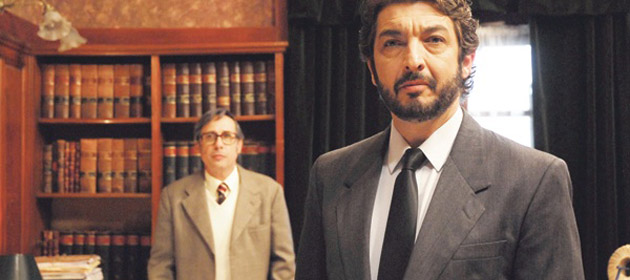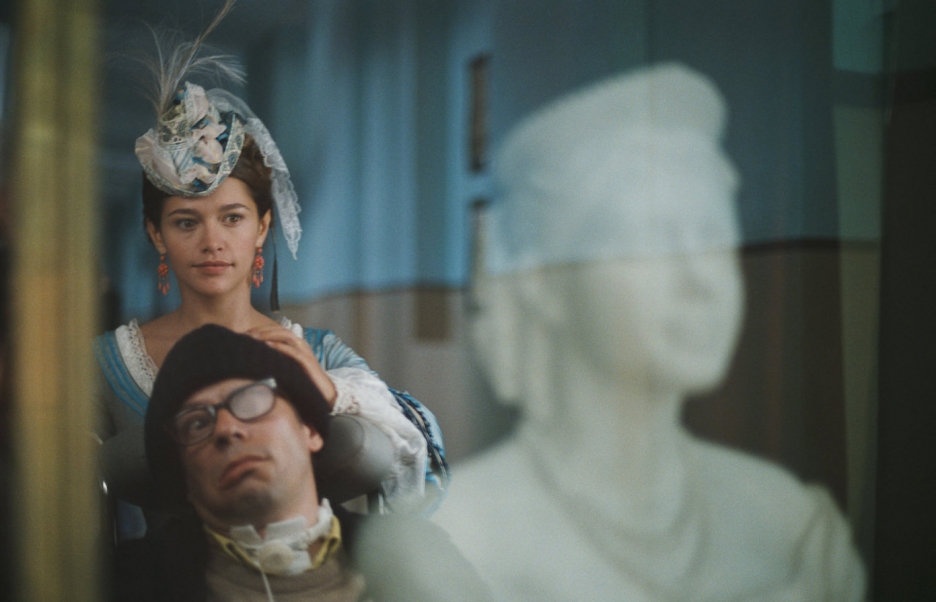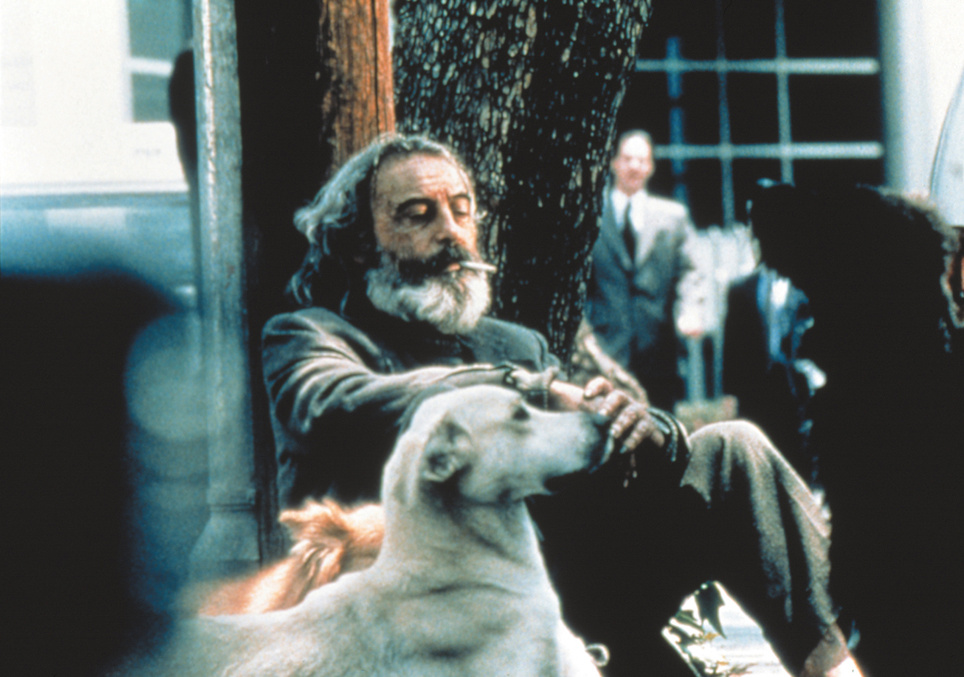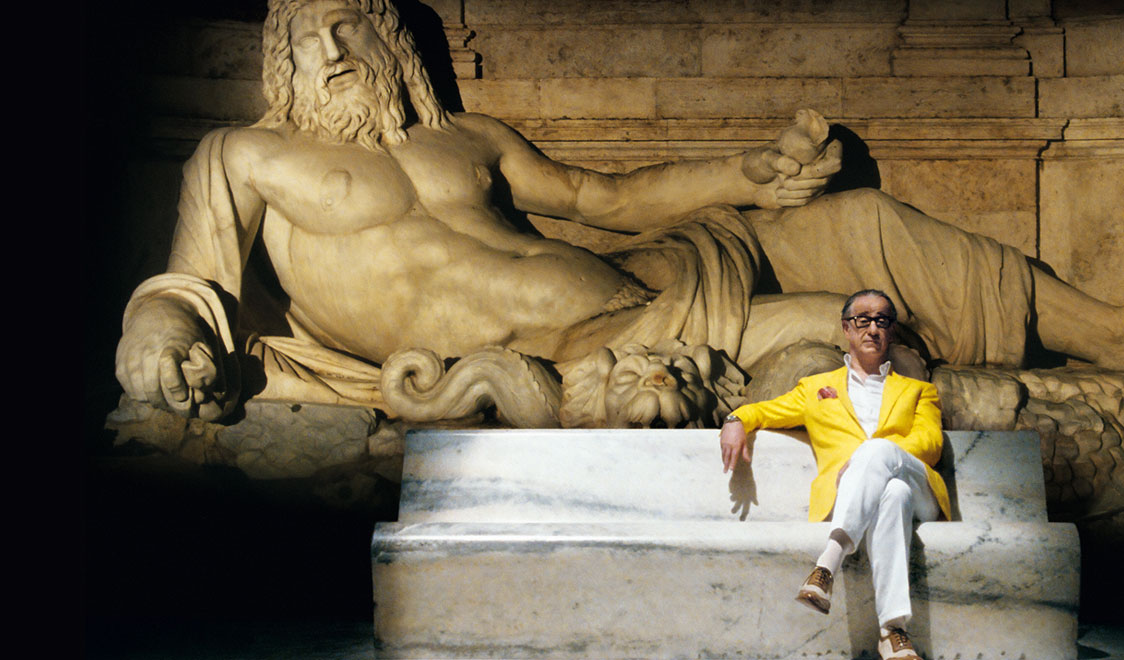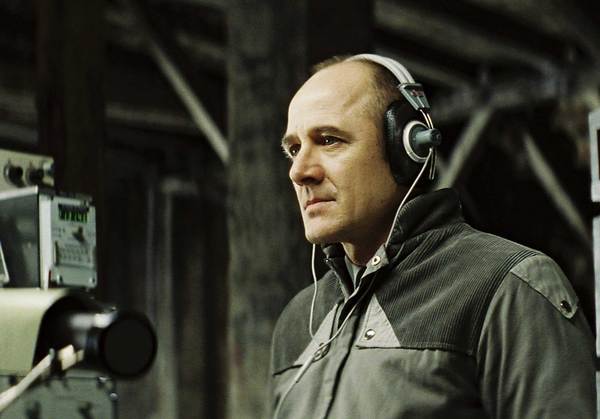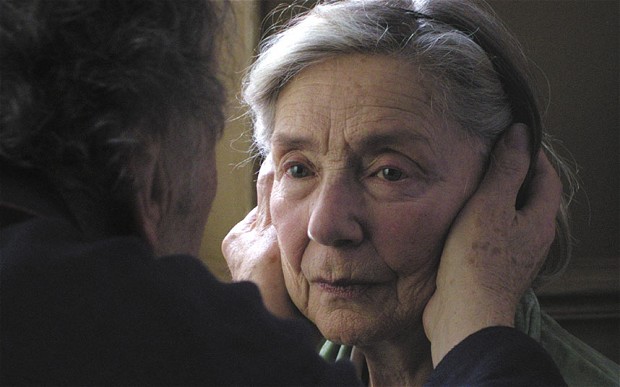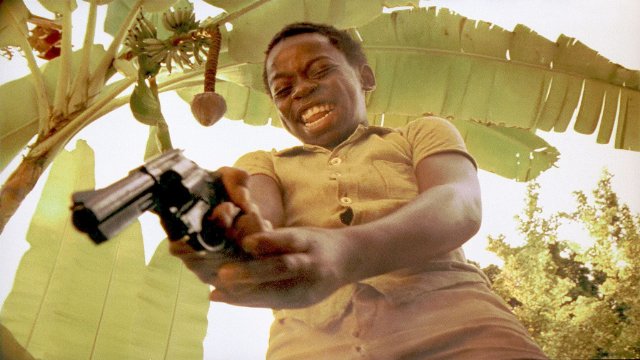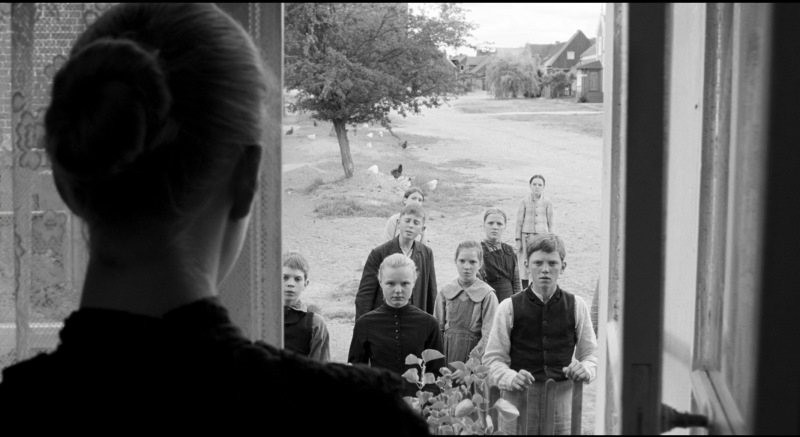8. The Secret in Their Eyes (El Secreto de sus Ojos) (2009, Argentina)
The most famous and likely one of the best films in Argentina’s recent spree of producing good films. This Best Foreign Language Film Oscar winner was immediately loved by audiences and is still remembered today. Benjamín Esposito tries to write a novel about a case he worked 25 years before as he worked as a legal counsellor. He had to face the rape and murder of a young woman. He promised the husband that he would find out who did it, and along with his alcoholic friend Sandoval and judge Irene, for whom he has secret feelings, they’ll do their best to try and find the man and bring him to justice.
The film has many strong points. The actors all do an excellent job, Ricardo Darín proves one more time why he is Argentina’s most beloved actor. The screenplay is both funny and suspenseful at the same time, filled with classic Argentinian humour without becoming a comedy. Director Juan José Campanella shows great skill balancing the story and mood. An American remake is to be released later this year, but we cannot count on it topping the original.
7. The Diving Bell and the Butterfly (Le Scaphandre et le Papillon) (2007, France)
This beautiful film is based on Jean Dominique Bauby’s memoirs, telling how he survived a massive stroke which left his body entirely paralyzed while his mind remained entirely conscious. He can only move his eyes, but one of them is sealed due to medical concerns. The film is the story of how he tries to cope with his new condition, showing through flashbacks of his life before the accident. The first half of the film is shown almost entirely through Bauby’s perspective.
The film delves deep into philosophy, treating themes such as one is really able to find freedom when we are forced into restricted situations. This is a very different picture as the ones we are used to. Director Julian Schnabel manages to tell a compelling story with a complicated subject, and how he executes everything from Bauby’s perspective is remarkable.
Mathieu Amalric puts in a great performance as the paralyzed Bauby, showing his anguish at first but later his acceptance of his condition. It received several awards at Cannes, César, Golden Globes and BAFTAs, and was nominated for four Academy Awards, including Best Director and Best Adapted Screenplay.
6. Amores Perros (Mexcio, 2000)
Amores Perros was one of the most successful, both critically and commercially, Mexican films of all time. Directed by recent Best Director winner Alejandro González Iñarritu, it tells three different stories connected by a car crash: Octavio, played by a young Gabriel García Bernal, who is in love with his brother’s wife and in order to run away with her, he enters the world of illegal dog fighting; Daniel leaves his family to be with super model Valeria, but after her leg is broken in a car crash with Octavio, their relationship begins to crumble; the vagabond El Chivo, who takes care of street dogs, including Octavio’s fighting dog, and who was a professional hit man related with military guerrillas.
This is a film that speaks about loyalty, inequality and violence, both towards humans and animals. Full of social commentary and critic, the film’s screenplay manages to tell three different stories all connected by an accidental turn of destiny. González Iñarritu shows since his first film that he is one of the best directors working today. García Bernal is excellent as well in this early role.
It was well received by critics at the time, winning the BAFTA Award for Best Film Not in the English Language and was nominated for its Oscar counterpart. It remains very well appreciated and has become a classic since the beginning of the century.
5. The Great Beauty (La Grande Bellezza) (2013, Italy)
La Grande Belleza is one of the most beautiful Italian films, it reminds us the likes of Fellini in its style and cinematography. We met Jep Gambardella the night of his 65th birthday, and in the following hours and days we come to learn a lot about him: his first love, how he wrote one famous novel as he was young, how he has done nothing after he’s big and has dedicated himself to comfortable lifestyle and throwing parties in Rome, and how he feels unfulfilled with how his life turned out to be. The main character of the film is Rome itself.
Director Paolo Sorrentino showcases the beauty of this historical and magical city. It opens with a quote from Journey to the End of the Night, “To travel is very useful, it makes the imagination work, the rest is just delusion and pain. Our journey is entirely imaginary, which is its strength”, definitely setting the audience for the journey they are about to take into Rome. Jep encounters a number of interesting colourful characters, making the film all the more fun to watch.
The script is very well written, with many situations and scenarios presented being original yet completely believable. Toni Servillo acts wonderfully as the aging Gambardella, truly showing his sense of disappointment. The film won the Best Foreign Language Film Award at the Oscars, Golden Globes and BAFTAs, as well as the European Award for Best Film. It is truly one of the most beautiful films in recent years.
4. The Lives of Others (Das Leben der Anderen) (2006, Germany)
This GDR drama follows Stasi Captain Gerd Wiesler as he is assigned to monitor playwright Georg Dreymann and his wife actress Christa Maria Sieland. Dreymann has subversive ideologies, and Wiesler ought to report them, but he slowly falls in love with Sieland and is unable to report to his superiors.
This was one of the first films to treat the subject of the German Democratic Republic in a dramatic manner after the fall of the Wall. It was met with critical acclaim, winning seven German Film Awards, including Best Picture and Director, and the Academy Award for Best Foreign Language Picture, and was as well a box office success. It was praised for its realism and the way it touches its delicate subject.
Ulrich Mühe is excellent in his performance as the lonely Strasi Captain Wiesler, we as an audience get to see the human side of a man who would be considered immoral. Martina Gedeck and Sebastian Koch are great in their roles as well. The art direction and costume design are very well made too. Director Florian Henckel von Donnersmarck deserves top praise for the work he does in this film. He creates a realistic vision of part of a country’s still shady and confusing history.
3. Amour (2012, Austria, France)
Michael Haneke’s latest film is one of the most memorable of his career. It’s the story of Anne, a retired piano teacher who lives with her husband Georges, who shared her profession. One day Anne suffers from a stroke which paralyzes the right side of her body. The rest of the film we see Georges struggle with Anne’s new condition, trying to take care of her without being able to handle himself properly and be totally free.
This one is very different from other Haneke films: although his nihilism is still prominent, he creates a depressing vision of the world by creating empathy to a suffering old couple. It opened to critical acclaim, winning the Palm d’Or at Cannes and the Best Foreign Language Picture Oscar, as well as winning bit at the César Awards and at the European Film Awards.
The performances by both Jean-Louis Trintignant and Emmanuelle Riva (she was nominated for an Academy Award in an entire non- English role) are captivating as the one who suffers morally and the one who suffers physically, respectively. The screenplay, written by Haneke, is one of the strong points as well, conveying the feelings of the characters and expressing the theme of lost freedom. And of course Haneke’s direction, using the closed up space to his advantage and symbolism, is top notch.
2. City of God (Cidade de Deus) (2002, Brazil)
The Brazilian crime film has been compared by many to films such as Goodfellas. Based on real events, it’s a story about rising crime in the Favela City of God. Rocket is a young boy who has a passion for photography and wants to lose his virginity, and is first hand witness to the rise of drug dealers such as Lil Zé and Bené, and later becomes photographer of a war that ensues within the Favela. This is not an easy watch.
Throughout the film we see kids murdering and being murdered, using drugs and having sex. However, the film is so well made and tells such a compelling story that it is definitely one of the best crime films we’ve seen in the past couple of decades. Director Fernando Meirelles does an excellent job portraying the slums of Rio de Janeiro, creating a very realistic atmosphere, but without sacrificing his fast paced style.
The characters and dialogues are very well written, credit to screenwriter Bráulio Mantovani. Its themes of social violence, marginality and crime in the slums are very resonant today. It was very well received by critics, appearing in many end of the year top 10 lists, and being nominated to four Academy Awards, including Best Director, and won 6 from a total of 17 nominations at the Brazilian Film Awards. This film is definitely one that will be remembered.
1. The White Ribbon (Das Weiße Band) (2009, Germany)
Michael Haneke delivers what can be considered the best non-English-language film of the 21st century until now. This is a dark tale about morality, about good and evil in everyday life, about society and family. Set in a northern German village right before the start of World War I, an elderly tailor tells about his experience when he worked as a school teacher and strange events began to occur in this village. The succession of strange occurrences lead to several tragedies, and an investigation is opened to find out who is behind this, only to discover a more disturbing truth.
This is a film about human nature. Throughout the film we discover a lot of the village people’s dark side. As the tension in the village begins to rise, each character shows their true self. Haneke tackles themes such as morality, human nature, religion, politics, sexuality and incest in his masterpiece. Readers of this list may have noticed that the Germans love to make films about their history, but although this film has a historical background, it is not a historical film, but a film that speaks about every society in every time period. The cinematography is also excellent, showing the landscape of northern German countryside.
The performances are very good as well, particularly the children, who are the most interesting characters in the film. It won the Palm d’Or at Cannes and was nominated for the Academy Award for Best Foreign Language Picture, but lost to The Secret in their Eyes. With its important themes, assured direction and script by Michael Haneke, great cinematography and all around great performances, this film takes number one spot as the Best Non-English-Language Film of the 21st Century.
Author Bio: Camilo Caballero is a Colombian student of Film and Media Studies at University of Marburg, Germany. He enjoys watching movies and reading literature.
